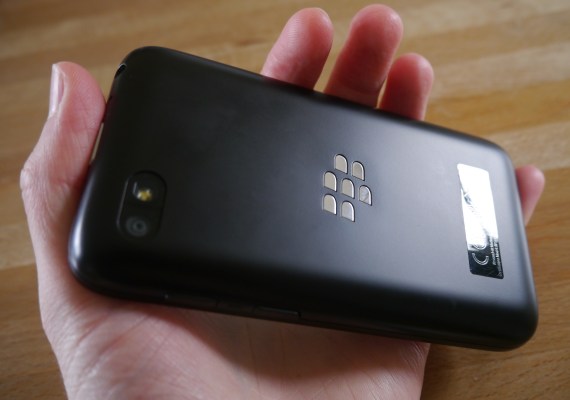Chinese phone and PC maker Lenovo has once again been linked with a potential BlackBerry acquisition. Yesterday the Wall Street Journal suggested Lenovo is actively considering a bid for all of BlackBerry. However, according to Reuters, which cites a source familiar with the matter, Lenovo is likely only after parts of BlackBerry pie — owing to regulatory obstacles that would stand in the way of it acquiring the whole company.
The Canadian mobile maker has struggled to make the transition from a legacy mobile platform, centred on devices carrying plastic Qwerty keyboards, to a touchscreen-centric world order with its BlackBerry 10 OS — making it an acquisition target.
The problem for Lenovo is that security concerns would make it difficult for it to acquire BlackBerry’s secure network, which still carries scores of confidential corporate and government emails — even though mainstream consumers have abandoned BlackBerrys for Androids and iPhones in their droves.
Similar security concerns have dogged Huawei, another Chinese mobile maker and networking company, thwarting its attempts to do business in North America. In Canada there’s the added complication of the Canadian government requiring any foreign bid for a national company that exceeds a certain threshold to pass a government review to determine whether it is of net economic benefit or a security risk. All of which makes a complete Lenovo takeover of BlackBerry unlikely.
Despite that, this is not the first time Lenovo has been linked with a possible BlackBerry acquisition. At the start of this year Lenovo’s CFO told Bloomberg it was considering BlackBerry as a potential acquisition target or strategic alliance partner — but then went on to downplay the comments. And nothing concrete came of the talk.
Since then BlackBerry’s problems have only increased, with scores of unsold Z10 devices helping to blow a $965M hole in its Q2 books. It has also moved from fighting talk, to making noises about a possible sale, to signing a letter of intent to go private (based on a $9 per share offer from Fairfax Financial), to actively shopping itself around to a range of tech peers. The Fairfax deal has run into skepticism over its valuation of the company, apparently pushing BlackBerry to look elsewhere.
What might Lenovo see in BlackBerry? Unlike the latter, the former has had a relatively decent recent run in mobile. In Q4 last year, Lenovo moved into the top five global smartphone vendors for the first time. This year, Gartner pegged its Q2 global smartphone share at 4.7%, putting it fourth globally (while BlackBerry’s OS share was just 2.7%). And posting its first quarter earnings back in August, Lenovo said its sales of mobiles and tablets had outstripped revenue from its core PC business for the first time, and reported a 10% year-over-year increase in its revenue.
However, it’s not all rosy for Lenovo. Its mobile growth has been fuelled by handset sales in its home market, with the company struggling to translate that homemade momentum into overseas growth. And even in China, Lenovo is facing competition from the rapid growth of Xiaomi — a relative newcomer that already has a market valuation equal to its.
Buying BlackBerry’s handset business could be one option Lenovo is eyeing to boost its appeal abroad as competition hots up at home. But it’s questionable how much appeal a BlackBerry-badged device would add to the Lenovo brand at this point, with BlackBerry having lost so much ground in the consumer space already.
